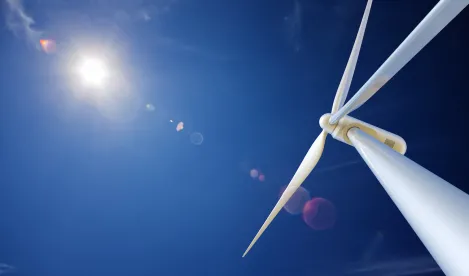On December 1, 2020, the Maine Climate Council released its final report, Maine Won’t Wait, A Four-Year Plan for Climate Action (the “Climate Plan”).
In June 2019, Maine Governor Janet Mills signed legislation creating the Maine Climate Council, and tasked it with developing this four-year Climate Plan to decrease greenhouse gas emissions by 45% by 2030 and 80% by 2050, and achieve carbon neutrality by 2045. The Climate Plan sets forth four goals: 1) Reduce Maine’s greenhouse gas emissions, 2) avoid the impacts and costs of inaction, 3) foster economic opportunity and prosperity, and 4) advance equity through Maine’s climate response.
To achieve these goals, the Maine Climate Council developed eight targeted strategies. Some of those strategies include:
-
Modernizing the transportation sector by accelerating the transition to electric vehicle and increasing fuel efficiency and use of alternative fuels
-
Modernizing Maine’s buildings by transitioning to cleaner heating and cooling systems and promoting climate-friendly building products
-
Protecting Maine’s natural resource industries and growing a clean energy economy by focusing on growing Maine’s forest products industry and using climate-related infrastructure projects to stimulate economic recovery
-
Protecting Maine’s environment and working lands and waters by promoting natural climate solutions and increasing carbon sequestration
Each climate strategy is broken down into more specific actions that are assigned to various lead state agencies that will be responsible for implementing these actions. For example, the implementation of the climate strategy targeted for the energy sector is as follows:
Strategy C: Reduce Carbon Emissions in Maine’s Energy and Industrial Sectors through Clean Energy Innovation
|
Action Area |
Outcomes |
Lead Agency |
Additional Information |
|
1. Ensure adequate affordable clean energy supply |
Achieve, by 2030, an electricity grid where 80% of Maine’s usage comes from renewable generation. |
Governor’s Energy Office; Public Utilities Commission |
Utilization and expansion of existing programs, as well as development of new initiatives. |
|
Set achievable targets for cost-effective deployment of technologies such as offshore wind, distributed generation, and energy storage, and outline the policies, including opportunities for pilot initiatives, necessary to achieve these results. |
Governor’s Energy Office |
Utilization and expansion of existing programs, as well as development of new initiatives. |
|
|
2. Initiate a stakeholder process to transform Maine’s electric power sector |
Establish a comprehensive stakeholder process in 2021 to examine the transformation of Maine’s electric sector and facilitate other recommendations of the Maine Climate Council. |
Governor’s Energy Office; Maine Public Utilities Commission; Office of the Public Advocate; Efficiency Maine Trust; stakeholders |
New |
|
3. Accelerate emissions reductions of industrial uses and processes |
Launch an Industrial Task Force to collaboratively partner with industry and stakeholders to consider innovations and incentives to manage industrial emissions through 2030 and reduce total emissions by 2050. |
Efficiency Maine Trust; Governor’s Energy Office; Maine Department of Environmental Protection |
New |
|
4. Encourage highly efficient Combined Heat and Power facilities |
Analyze policies, including the potential for long-term contracts, needed to advance new highly-efficient combined heat and power (CHP) production facilities that achieve significant net greenhouse gas reductions |
Maine Public Utilities Commission |
New analysis; existing authority at the PUC |
Additional climate strategies and detailed outcomes of each strategy can be found in the Climate Plan.
While this is the first Climate Plan, the work will be ongoing as the Maine Climate Council is charged with updating the plan every four years. Progress on climate strategies and action items will be monitored quarterly by the Maine Climate Council and working groups. The specific metrics that will be used for evaluating progress toward these climate mitigation and adaptation goals are outlined in the Climate Plan, as well as near-term and long-term funding and financing options for achieving those goals.





 />i
/>i
